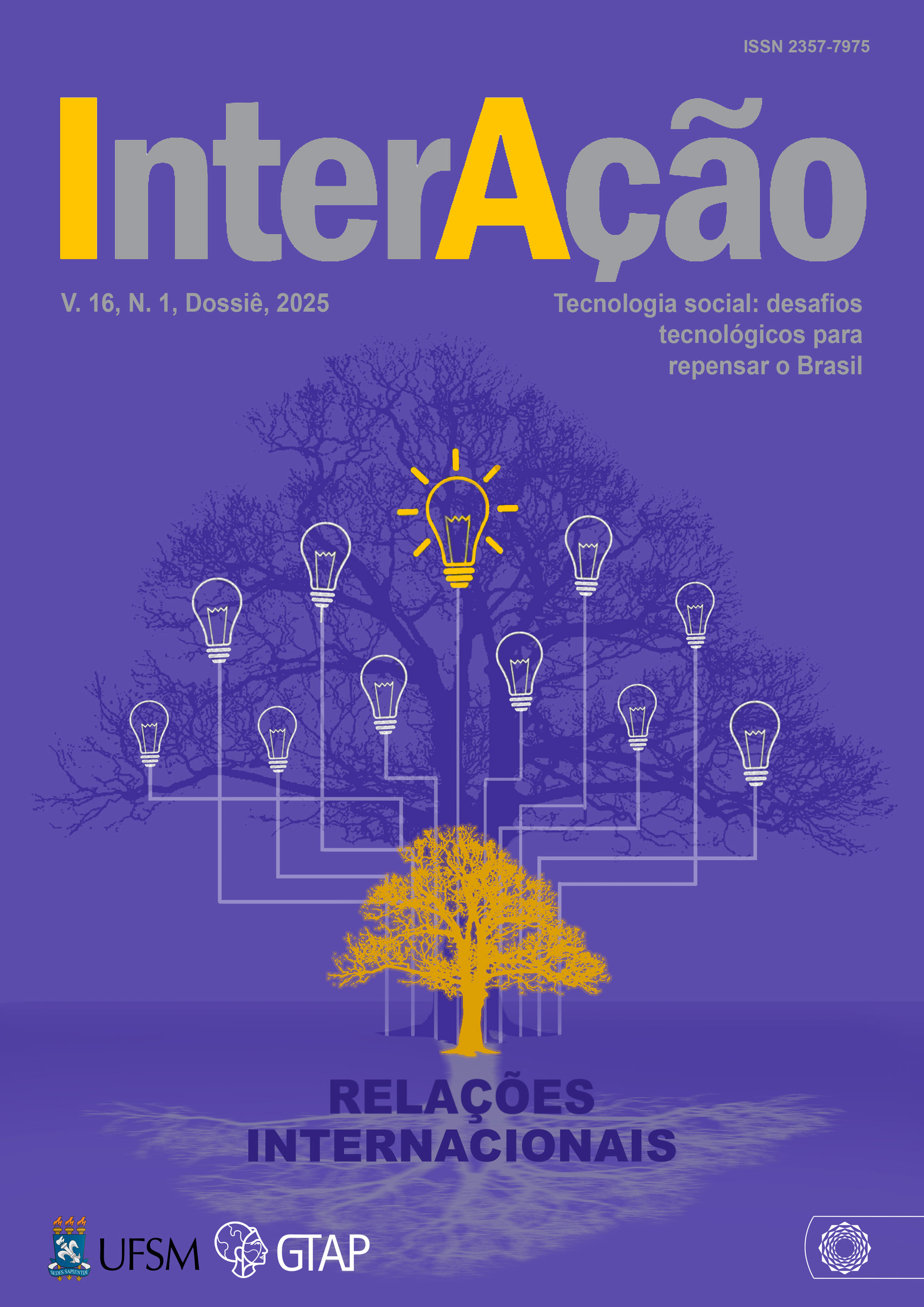Mixed methods in International Relations: exploratory study of Brazilian research
DOI:
https://doi.org/10.5902/2357797588214Keywords:
Mixed methods, International Relations, Scientific research, Brazil, Quali-quantitativeAbstract
This research investigates the application of mixed methods in International Relations studies in Brazil. The guiding question is: what are the main applications of mixed methods in Brazilian research on International Relations? The general objective is to explore these possibilities, focusing on national academia. The specific objectives are to identify and characterize the studies that have adopted mixed methods in International Relations research in Brazil, analyzing the frequency of use of this approach and the methodological strategies employed; to examine the techniques used for data collection and analysis in the studies reviewed, highlighting the predominant methods, their applications, and combinations in the context of International Relations research; and to assess the methodological limitations present in the reviewed studies, as well as explore opportunities for expanding and improving the use of mixed methods in the field. Methodologically, this study is qualitative and exploratory in nature. Data collection was based on a systematic literature review conducted through the CAPES Journal Portal, with analysis carried out in January 2024. The searches employed keywords defined by the Brazilian Association of International Relations (ABRI), reflecting key themes in the field. The inclusion criteria encompassed scientific articles published in journals classified as A4 or higher in the field of Political Science and International Relations (CPRI) during the 2017-2020 four-year period, according to the classification available on the Sucupira platform as of January 2024. The results corroborate the initial hypothesis of a methodological gap in the field, revealing low adherence to mixed methods despite their potential to enhance research within the national context.
Downloads
References
ALBUQUERQUE, Rodrigo Barros de; MESQUITA, Rafael; LIRA BRITO, Renato Victor. Obscuridade metodológica: um mapeamento da formação em métodos na pós-graduação em Relações Internacionais e áreas afins no Brasil. Revista Brasileira de Ciência Política, 2022. DOI: https://doi.org/10.1590/0103-3352.2022.39.258379
CARVALHO, Thales; GABRIEL, João Paulo Nicolini; LOPES, Dawisson Belém. ‘Mind the Gap’: Assessing Differences between Brazilian and Mainstream IR Journals in Methodological Approaches. Contexto Internacional, v. 43, p. 461-488, 2021. DOI: https://doi.org/10.1590/s0102-8529.2019430300002
ÇİÇEK, Aylin Ece; TETİK, Damla CİHANGİR. Theoretic and Methodological Approaches Towards the Application of Mixed Methods in the Discipline of International Relations. Siyasal: Journal of Political Sciences, v. 31, n. 2, p. 255-264, 2022. DOI: https://doi.org/10.26650/siyasal.2022.31.1124155
CRESWELL, John W. Educational research: planning, conducting, and evaluating quantitative and qualitative research. 4. ed. Boston: Pearson, 2012.
CRESWELL, John W.; CLARK, Vick L. Plano. Pesquisa de métodos mistos. 2. ed. Porto Alegre: Penso, 2013.
CURINI, Luigi; FRANZESE, Robert. The SAGE Handbook of Research Methods in Political Science and International Relations. California, SAGE Publications, 2020. DOI: https://doi.org/10.4135/9781526486387
DELLA PORTA, Donatella; KEATING, Michael (Ed.). Approaches and methodologies in the social sciences: A pluralist perspective. Cambridge University Press, 2008. DOI: https://doi.org/10.1017/CBO9780511801938
GALVÃO, Maria Cristiane Barbosa; PLUYE, Pierre; RICARTE, Ivan Luiz Marques. Métodos de pesquisa mistos e revisões de literatura mistas: conceitos, construção e critérios de avaliação. InCID: Revista de Ciência da Informação e Documentação, v. 8, n. 2, p. 4-24, 2017. DOI: https://doi.org/10.11606/issn.2178-2075.v8i2p4-24
HARBERS, Imke; INGRAM, Matthew. Mixed-methods designs. The SAGE Handbook of Research Methods in Political Science and International Relations, v. 2, p. 1117-32, 2020. DOI: https://doi.org/10.4135/9781526486387.n61
KING, Gary; KEOHANE, Robert; VERBA, Sidney. Designing Social Inquiry: Scientific Inference in Qualitative Research. Princeton University Press, 1994. DOI: https://doi.org/10.1515/9781400821211
JAIN, A. K.; MURTY, M. N.; FLYNN, P. J. Data clustering: a review. ACM Computing Surveys, New York, v. 31, n. 3, p. 265-323, Sept., 1999. DOI: https://doi.org/10.1145/331499.331504
SCHWETHER, Natália D.; MOURA, Nayanna S.; MELO E SILVA, Murilo. Research design in International Relations: analysis about the methodological culture of RBPI’s papers (1994-2017). Mural Internacional, Rio de Janeiro, v. 10, 2019. DOI: https://doi.org/10.12957/rmi.2019.37923
QUIVY, R., CAMPENHOUDT, L.V. Manual de Investigação em Ciências Sociais. Lisboa, Ed. Gradiva, 1995.
Downloads
Published
How to Cite
Issue
Section
License

This work is licensed under a Creative Commons Attribution-NonCommercial-ShareAlike 4.0 International License.







